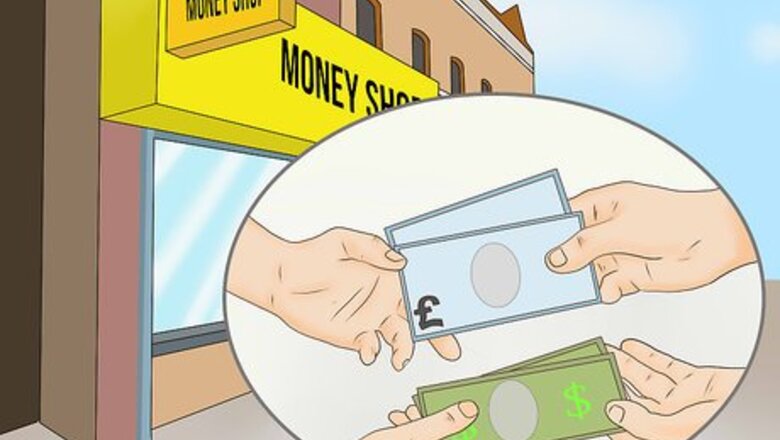
views
Choosing a Method of Payment
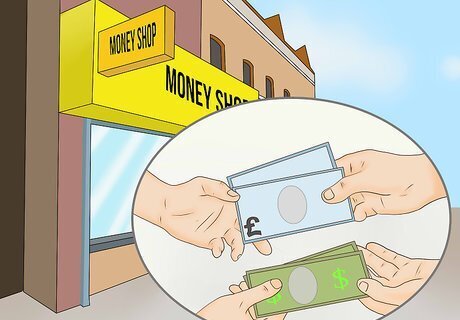
Use cash. It is always a good idea to take some cash in the local currency with you when travelling. You will most likely need the cash to pay for transportation and food once you arrive at your destination. Before traveling, convert your cash to the local currency. It is best to exchange your money at your own bank, first. Your bank will have lower exchange rates and fees when compared to other venues.
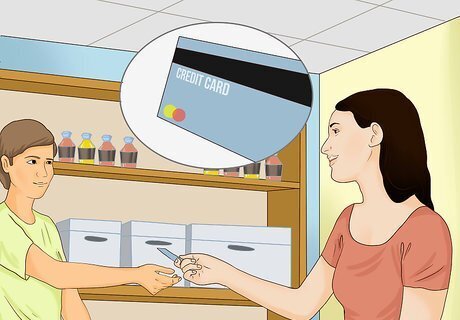
Use credit and debit cards. Using a credit card to exchange money can be one of the cheapest ways to spend money abroad, if done correctly. Save your money by obtaining a “travel friendly” credit or debit card. If you use your usual card abroad, you can get hit with four different types of fees: a foreign usage fee, a cash withdrawal fee, credit card interest, and flat fees. For example, your bank can charge you overseas usage fees from 2.75 to 3 percent of the amount charged to your card. Generally, though, credit and debit cards offer competitive exchange rates and are more secure than cash. Choose the best card for your trip by visiting your bank. Tell them that you will be traveling and that you would like to know if your current credit or debit card is “travel friendly” or not. If it isn’t, ask them about the cards they offer that are suited for travelling overseas. You can also visit online comparison sites where you can get expert recommendations on which cards to use overseas.
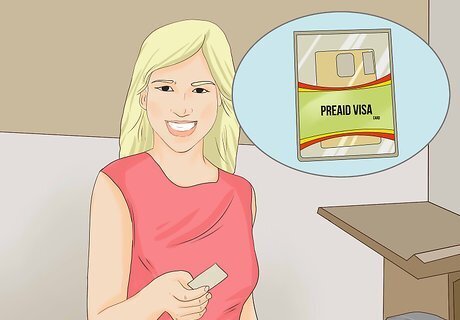
Use prepaid cards. If you want to avoid incurring the fee charges accompanied with using a credit or debit card, think about getting a prepaid card. You can load prepaid cards in advance with cash before you travel. And, if you preload them when the exchange rate is good, you can save a lot of money. You can find prepaid cards that are designed especially for foreign travel. Choose from some popular prepaid cards: American Express GlobalTravel Card, VISA TravelMoney Card, MasterCard Prepaid Travel Card, Travelex Cash Passport Card. Prepaid cards are not without their drawbacks, however. There are still fees that can apply depending on which card you get, such as an application fee, a withdrawal fee, an inactivity fee, or a monthly fee. Check the fine print of each prepaid card.
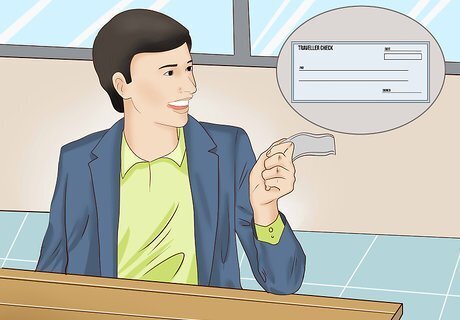
Use traveller’s checks. Traveller’s checks are pre-printed checks with set amounts. You can use traveller’s checks to pay for things or exchange them for cash. They work very similarly to your regular banking checks. You cannot buy something that is worth more than the amount of the traveller’s check, however. You can visit a bank, a Post Office, a bureau de change, or a travel agent to purchase traveller’s checks. One drawback of using traveller’s checks is that there are a limited number of places that will exchange them for cash. Therefore, you will have to do some searching if you want to exchange them. Another drawback is that you pay fees when you buy the checks, and a commission when you use them.
Finding a Place to Exchange Your Money
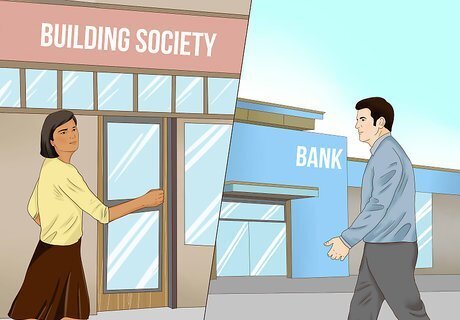
Visit a bank or a building society. You can exchange your cash or withdrawal money from your credit or debit card at a bank or a building society. Building societies are very similar to banks. Some notable banks to exchange your money at in the UK are the Bank of England, Bank of Ireland, Citibank, Barclays, Halifax, Nationwide, HSBC, the Bank of Scotland, and the Allied Irish Bank. Exchanging your money at a bank or a building society is one of the better ways to exchange money in terms of fewer and lower fees. However, some banks will not exchange your money if you are not a customer. You will need identification such as your passport to exchange or withdrawal money.
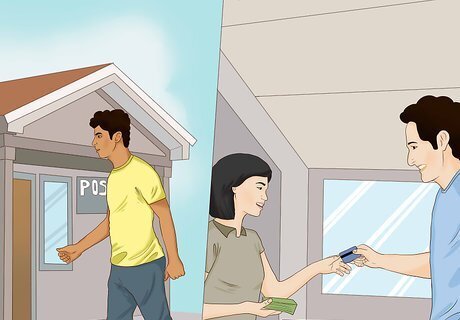
Go to a Post Office. Post Offices will also exchange money for you. Post Offices are convenient places to exchange your money because there are a lot of locations. They are also open longer than your average bank. They typically open earlier and close later. Most Post Offices open at 7:30 a.m. and close at 10:30 p.m. With a Post Office, you can also order your money online. The office will have your money ready for you to pick up once you get there at the Travel Money counter. You just need to bring your passport and the credit card you used to buy the money with.
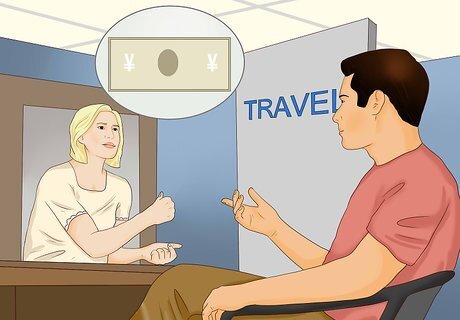
Find a bureau de change or a travel agent. A bureau de change or a local travel agent will also exchange your money for you. Always enquire about the fees, commissions, and exchanges rates when exchanging your money. Some places have more competitive exchange rates, fewer fees, and lower commissions than others. The bureau de change at ferry ports or airports are some of the most expensive places to buy currency.
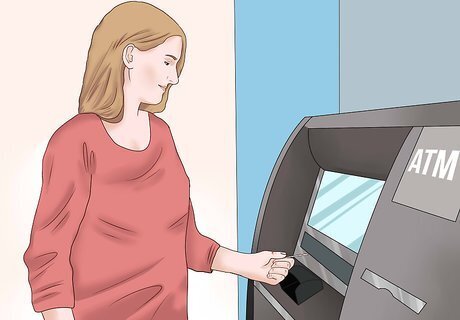
Use an ATM. You can also exchange your money at an ATM. Before leaving for your trip, make sure your ATM card is linked to the PLUS, Maestro, or Cirrus networks. These networks will enable you to exchange money almost anywhere. The PLUS network is associated with VISA, while the Maestro and Cirrus networks are associated with MasterCard. Make sure the ATM has these logos before exchanging money. Keep in mind that ATMs abroad, especially ones in Europe, do not accept ATM cards with PINs that are longer than four digits and PINS that are letters. If your PIN is longer than four digits and is composed of letters, contact your bank to have your PIN changed. While exchanging money at an ATM is convenient and can be cheaper, it can also be risky in terms of your information being safeguarded. Therefore, it is best to exchange your money at an ATM that is in a major bank. Before traveling, check with your bank about international withdrawal fees. These fees can range from $1 to $6, or can be a set percentage of the total withdrawal.
Sorting Your Affairs Before Traveling
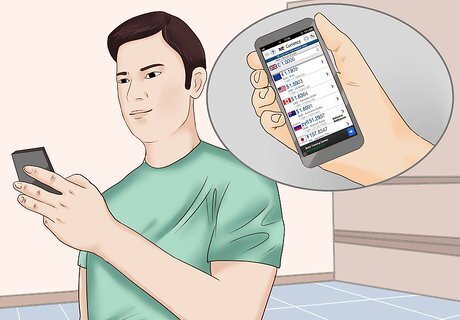
Monitor the exchange rate. Many companies will sell you foreign currency, but you need to be aware of these companies' exchange rates. Some companies have higher exchange rates than others. Additionally, exchange rates are constantly changing. Check with your own bank first. Your own bank usually offers lower exchange rates to its customers. You can monitor exchange rates by downloading apps on your phone or computer that specifically do this. For example, XE Currency is a free app that works for both Androids and iPhones. Currency and Currency+ are both free exchange rate apps that work on iPhones. Exchange Rates and Easy Currency Converter are both free exchange rate apps that work on Androids. There are also exchange rate monitor services on the Internet that will alert you if a rate has changed through e-mail or other notifications.

Sort your money before you leave. Before you leave, determine how much money you will need for your whole trip. Then, calculate how much pocket money you will need upon arriving for transportation, food, and other immediate expenses. Also, remember to factor in exchange rates and fees when calculating how much money you will need. Exchange your money at home before you leave abroad. It is always best to have a variety of payment options, i.e., cash, card, checks, because if you lose one, you will still have other ways to exchange your money.
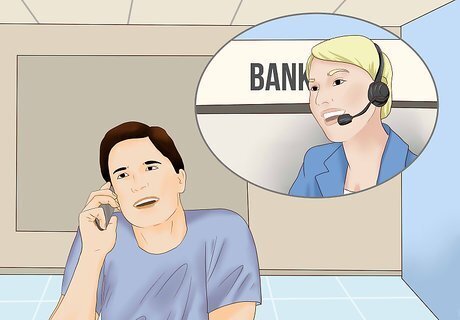
Notify your bank. Before traveling, always notify your bank that you will be traveling to your destination. This will prevent the bank from putting a hold on your card for suspicious charges. Call your bank’s toll-free number and notify them about where and when you will be traveling.















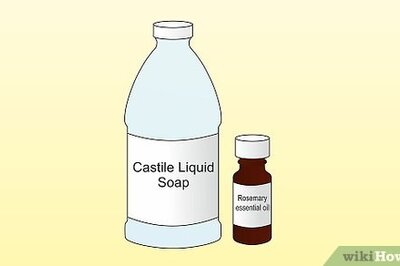


Comments
0 comment